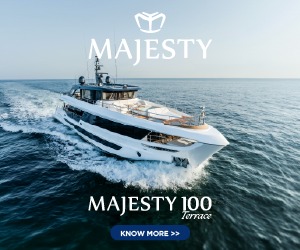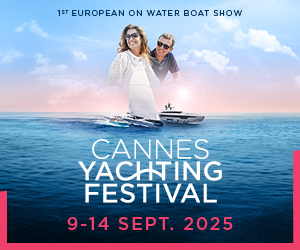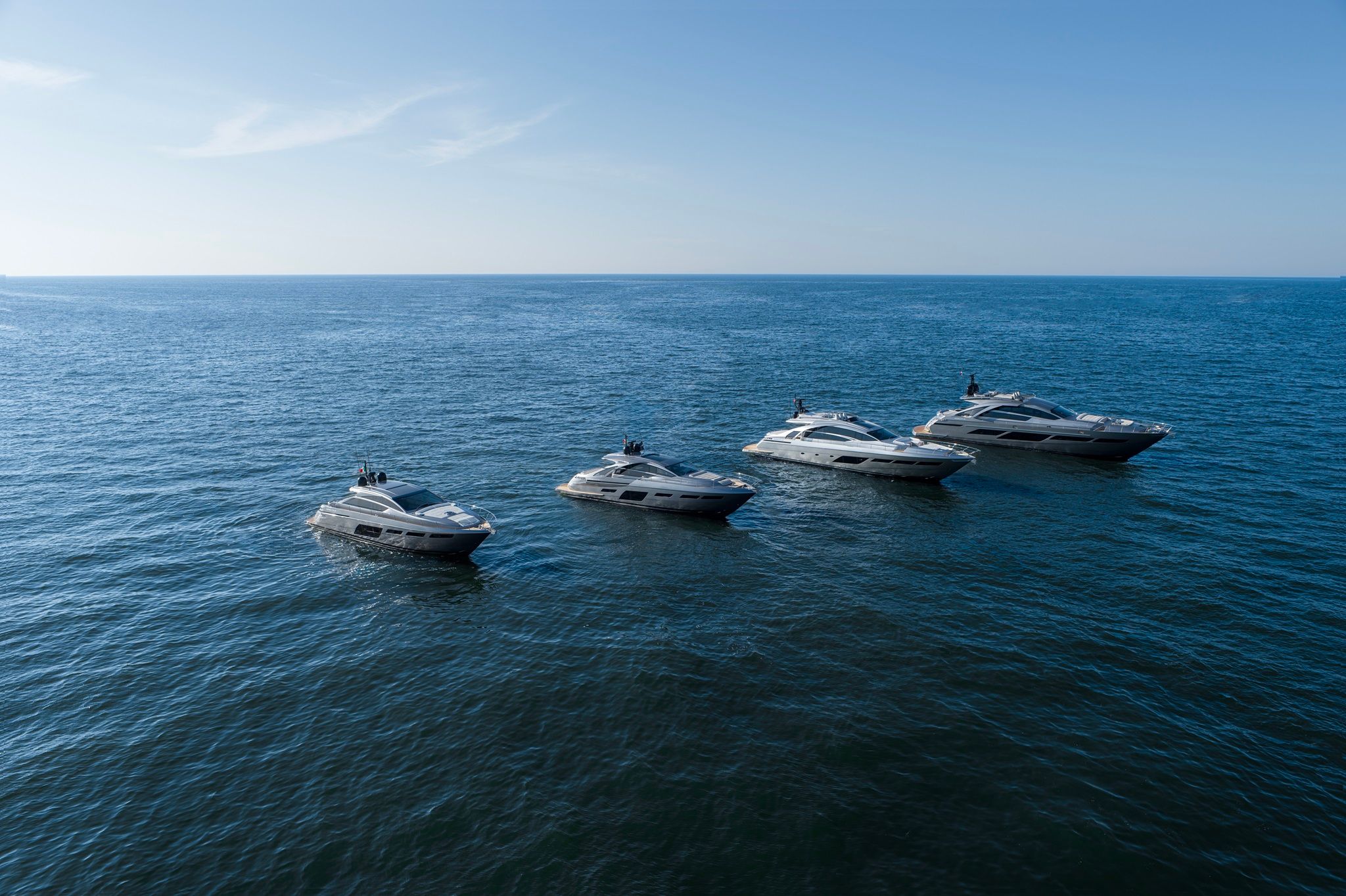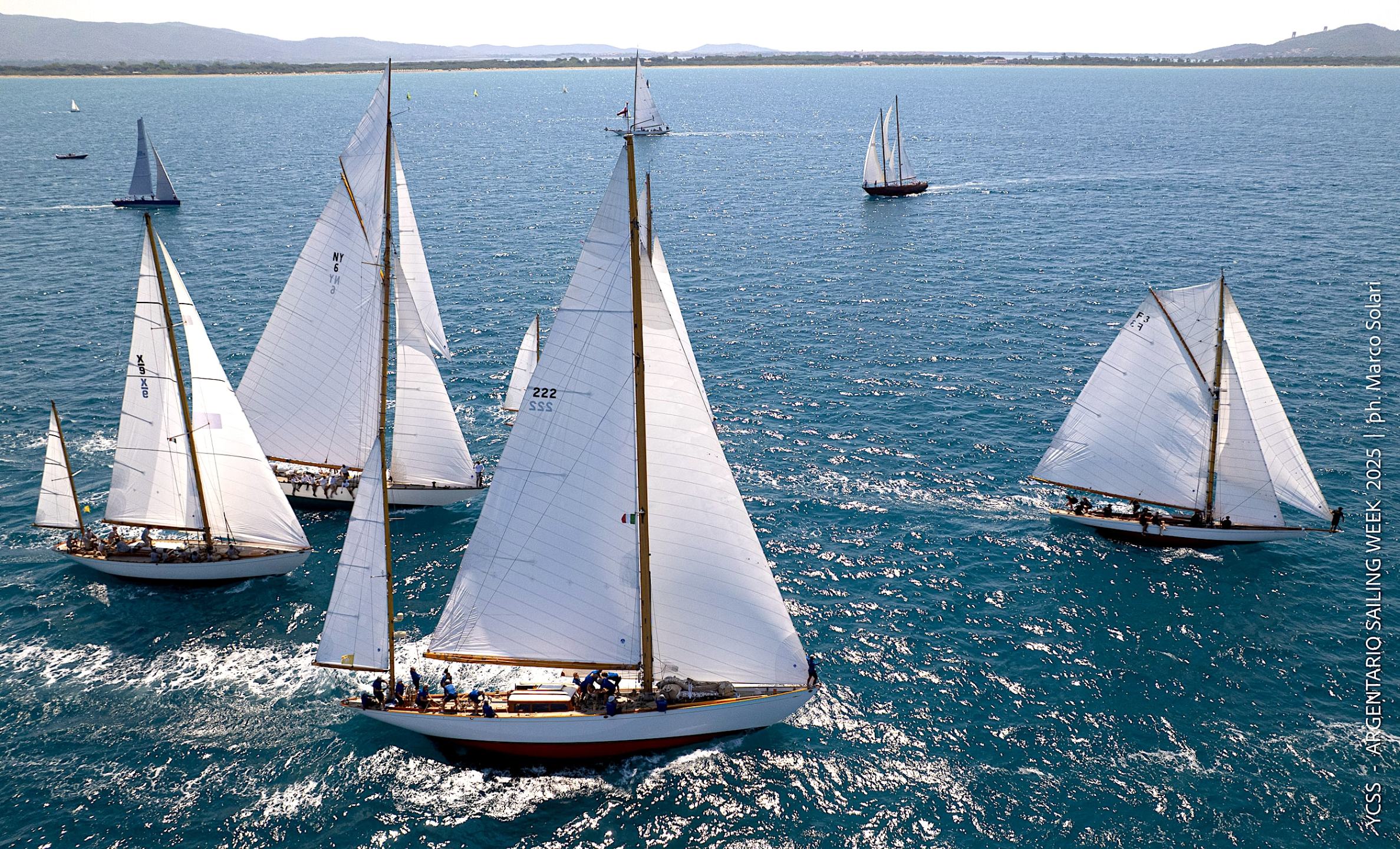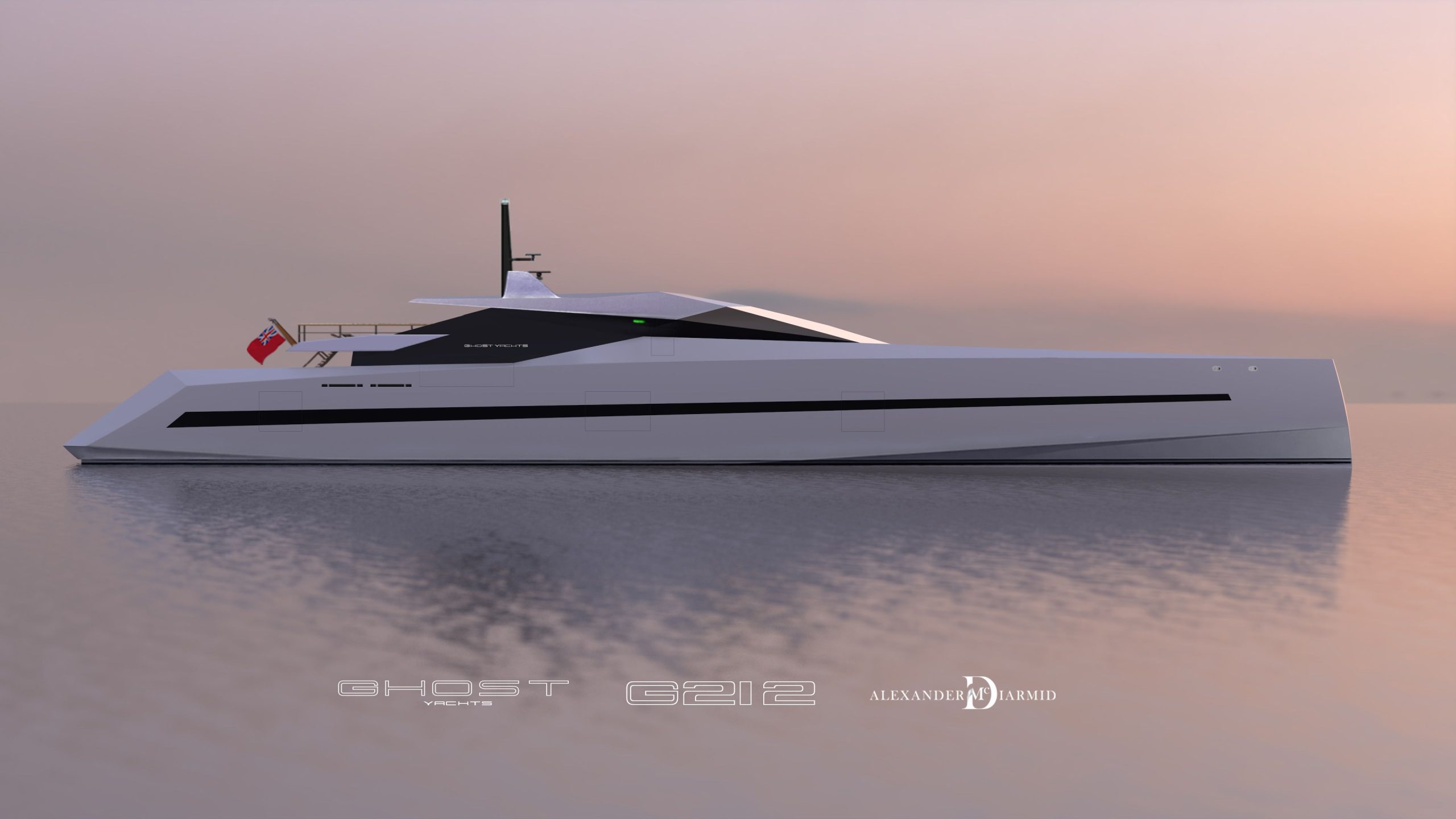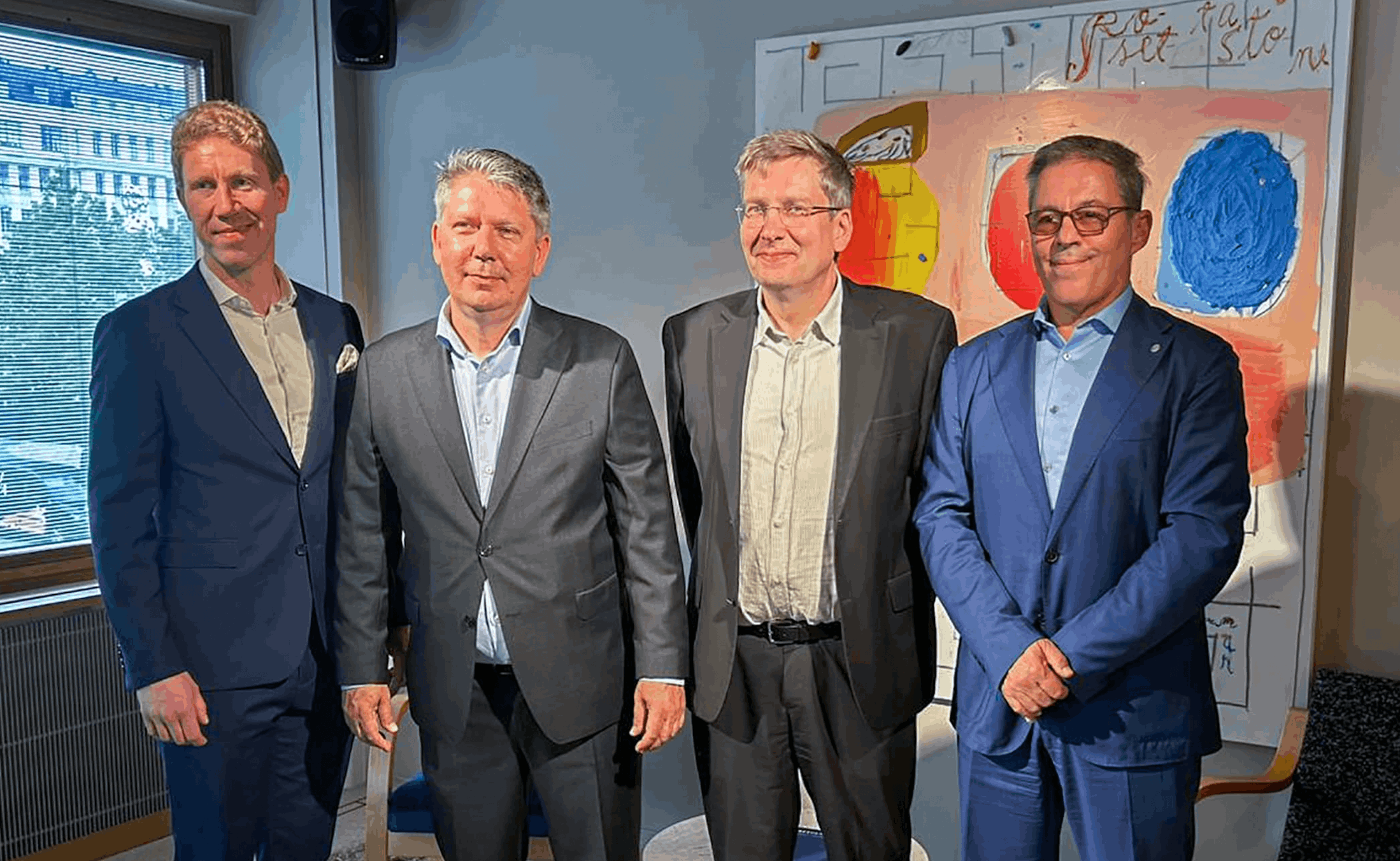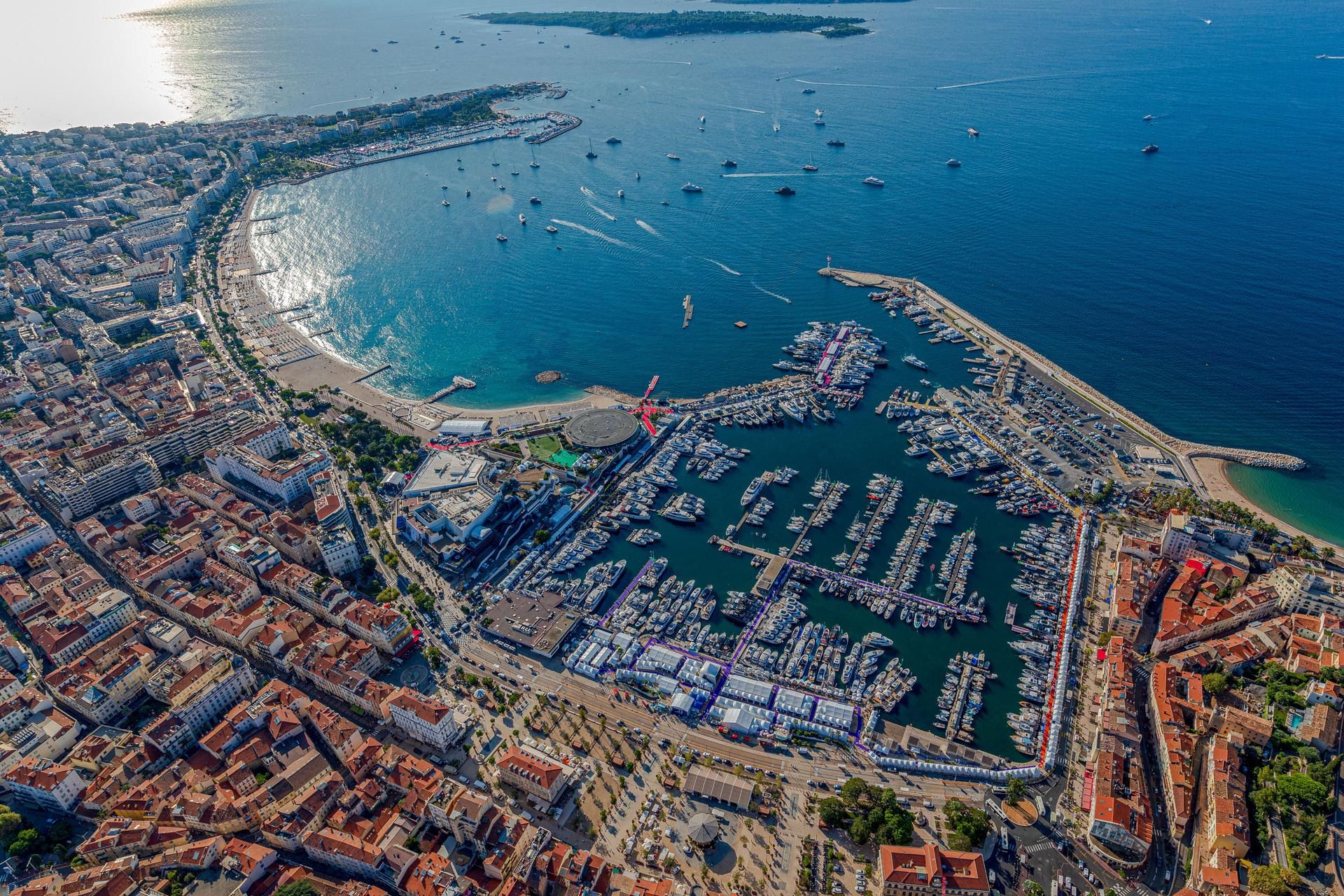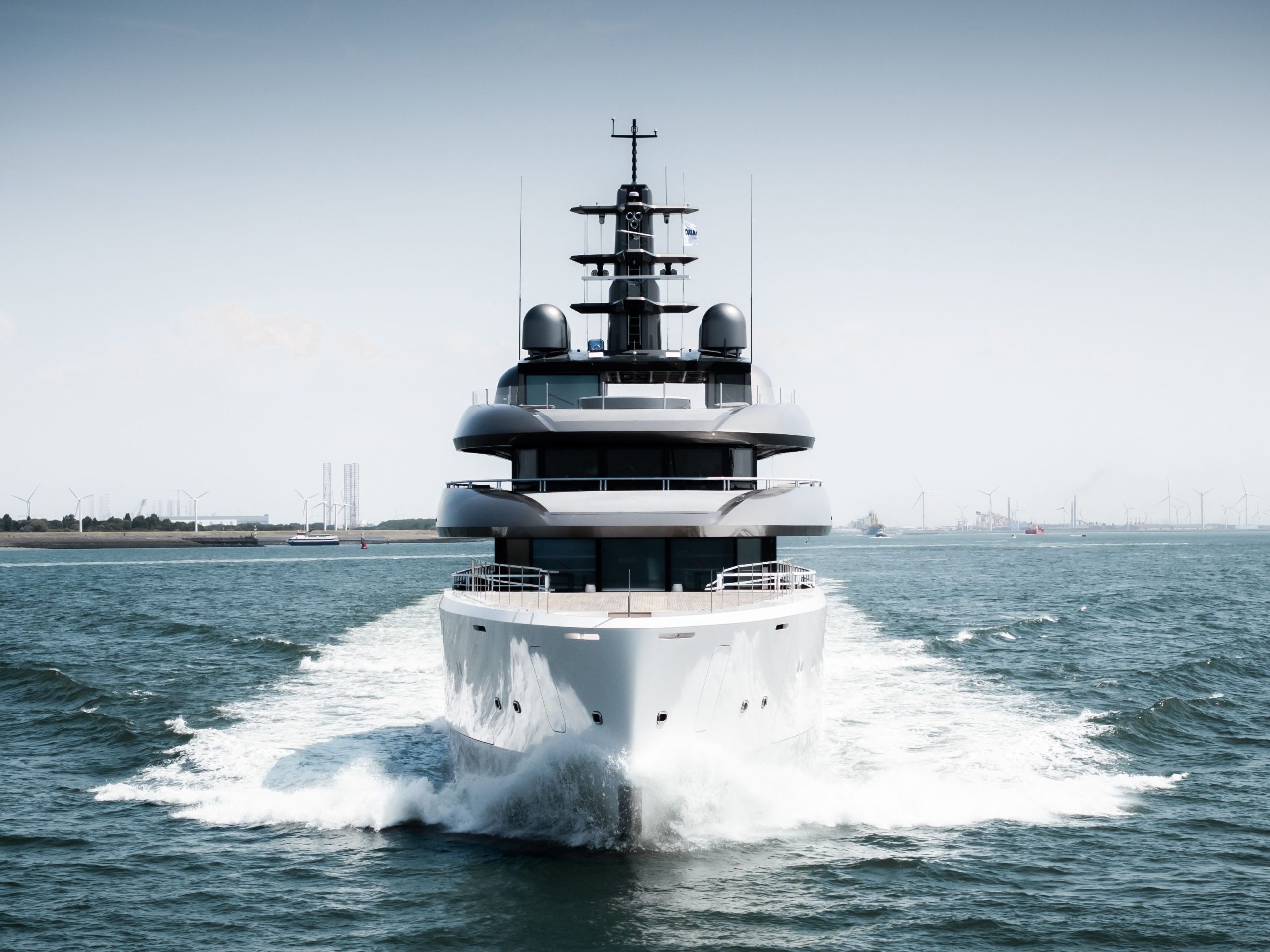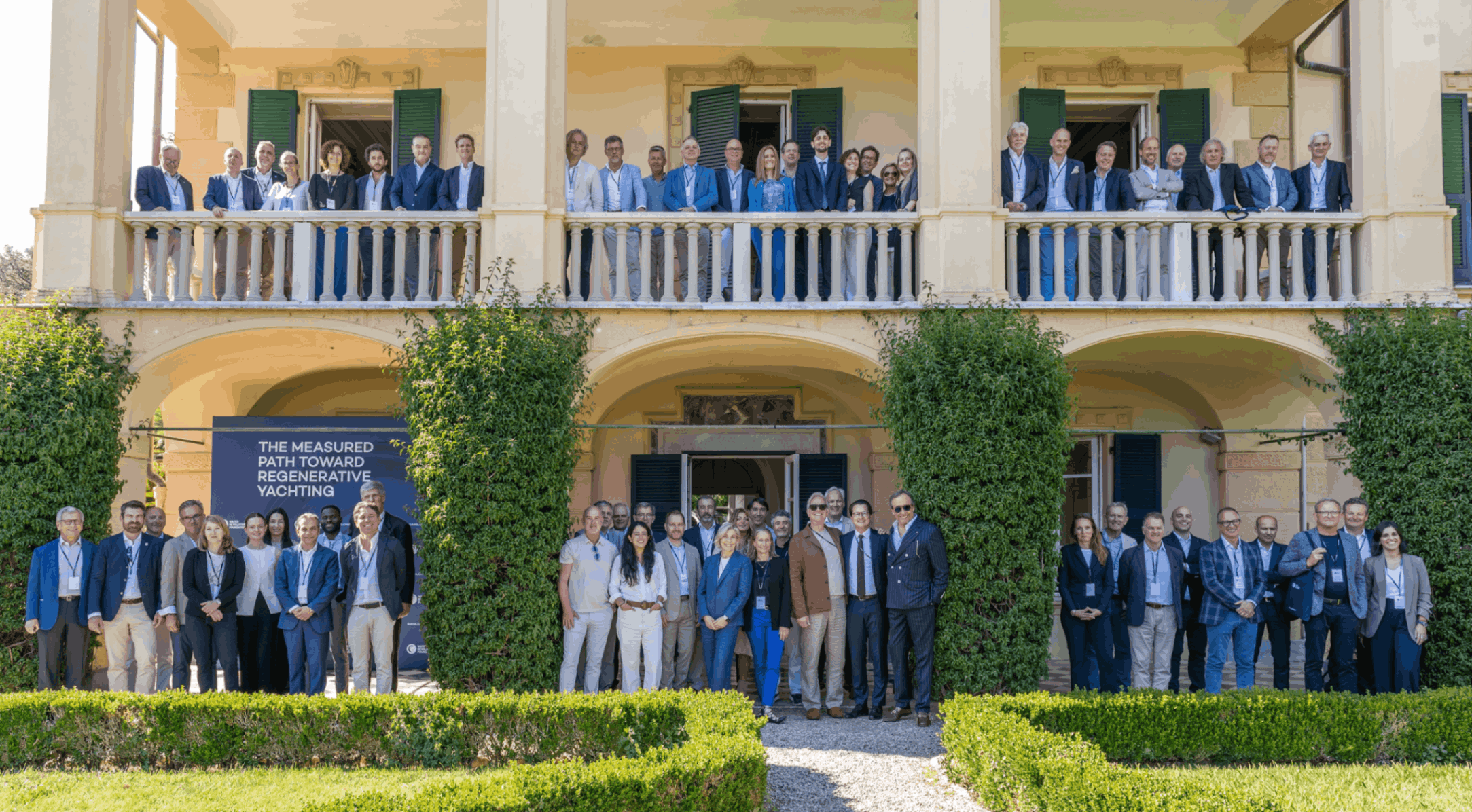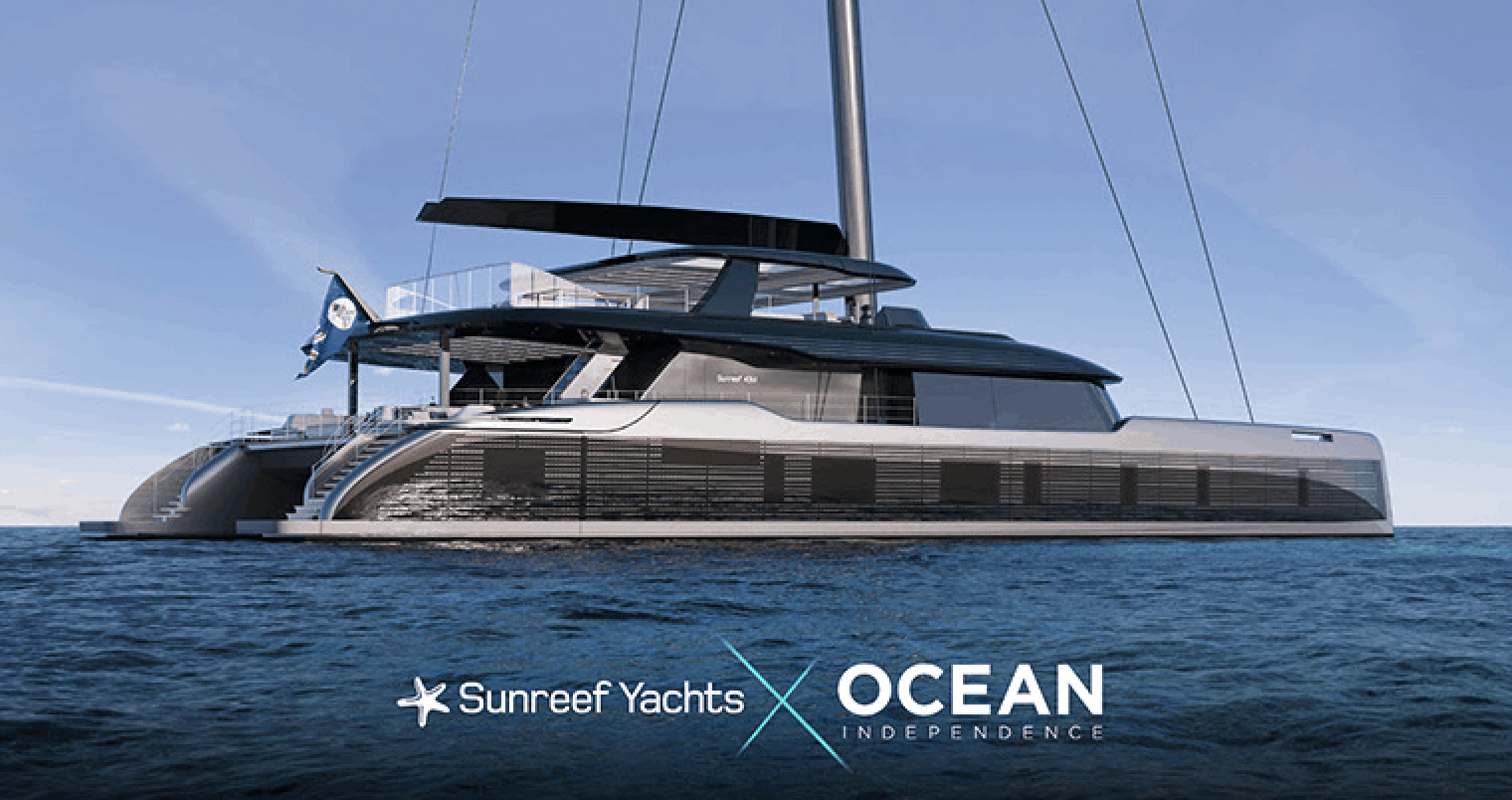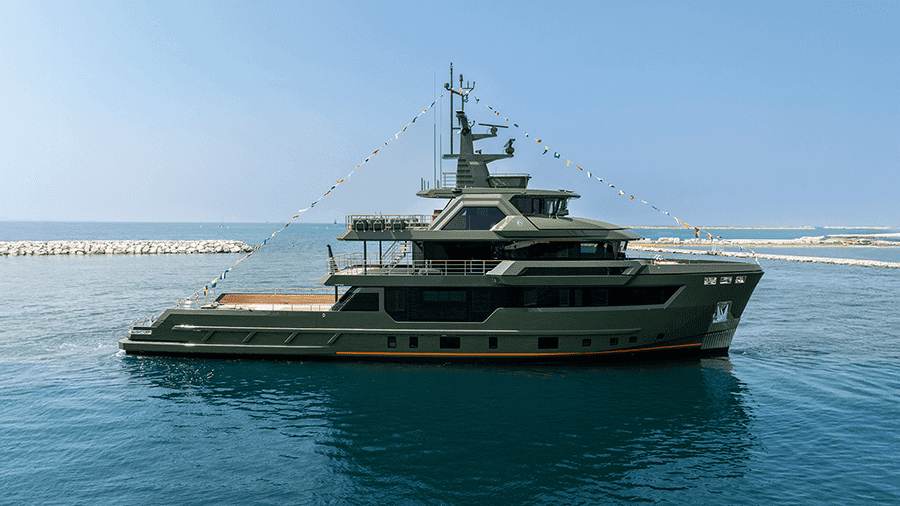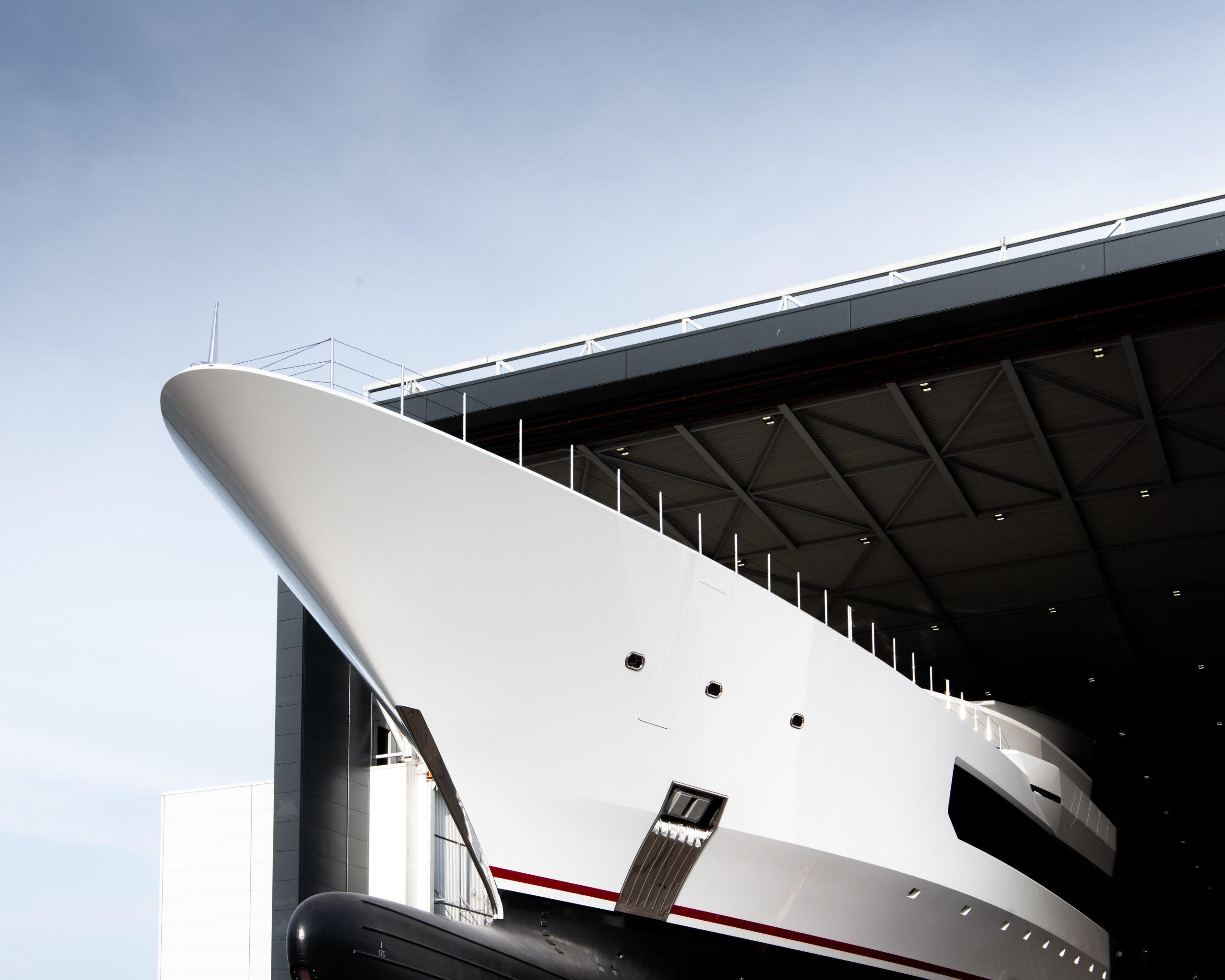Sustainability Conference offers window into sustainable superyacht industry initiatives
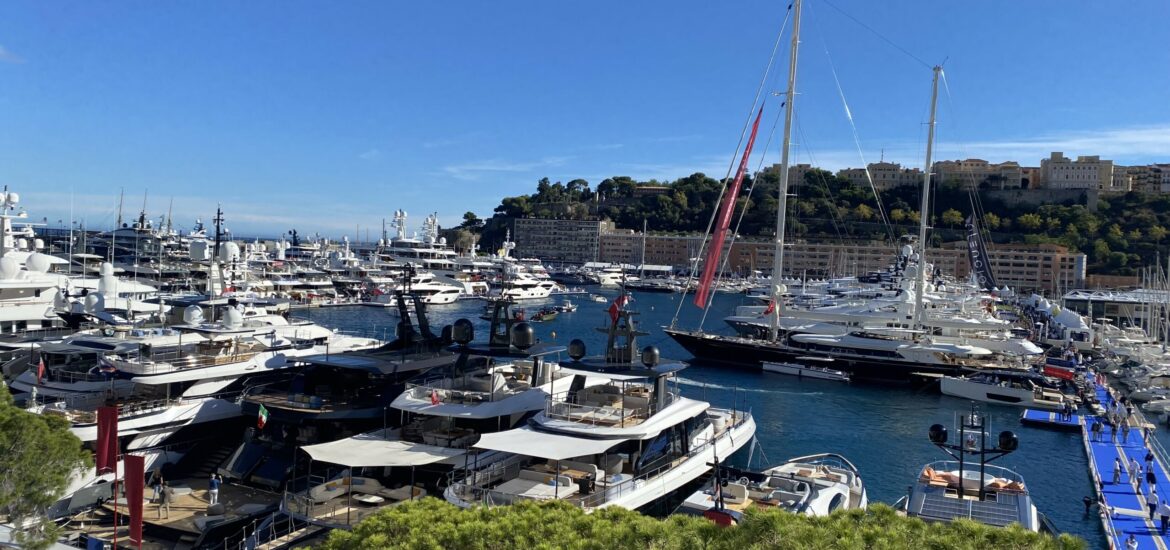
The Monaco Yacht Show and SYBAss, together with Water Revolution Foundation and
Superyacht Life Foundation, were the key partners behind the Sustainability Conference
– an open-door panel discussion that aimed to inform the wider media with a snapshot
of how the superyacht industry is making progress in the area of sustainability.
The representatives on the panel included Gaëlle Tallarida, Managing Director of the
Monaco Yacht Show; Robert van Tol, Executive Director of Water Revolution
Foundation; naval architect Philippe Briand; CEO of the Baltic Yachts shipyard Anders
Kurtén; and Giedo Loeff, who works as Head of Research and Development at Dutch
superyacht builder Feadship. The panel was hosted and moderated by Tony Harris,
Superyacht Industry Ambassador at Informa Markets.
The first part of the discussion included short updates from each of the panellists, who
gave an insight into key developments and thought processes that are driving the
industry forward. Among those, outlined by Gaëlle Tallarida, was an introduction to a
new initiative for the 2022 Monaco Yacht Show – the Sustainability Hub. Created to
highlight innovative projects and companies offering sustainable solutions to the
superyacht industry, the Hub’s exhibitors had all been verified for eligibility by Water
Revolution Foundation, the non-profit organisation that is developing various tools to
help the industry reduce its environmental footprint.
Tallarida also described the Show’s efforts to become more sustainable, including
measures it is taking to reduce its own impact, its commitment to the Monaco Pact in
collaboration with the Prince Albert II of Monaco Foundation, and its work with Water
Revolution Foundation on setting up the Sustainability Hub.
“We are committed to a more sustainable event, and we already have solutions in
place,” said Tallarida. “Moreover, the Sustainability Hub highlights sustainable solutions
and projects that help reduce the superyacht environmental footprint with the support of
the yachting industry and with the help of Water Revolution Foundation. The Hub has
start-ups specialising in technology, solutions and eco-friendly concepts, and it is set to
take a leading role in showcasing innovative and future superyachting solutions.”
For Robert van Tol of Water Revolution Foundation, the Conference was a chance to
explain how the Foundation is driving both measurement and cooperation within the
industry to highlight the importance of full lifecycle assessment, develop the tools that
will enable builders, designers and suppliers to make tangible differences in their
collective footprint, and foster a community of shared research that will benefit the whole
industry.
“Yachting is the only maritime sector that has a dedicated non-profit organisation for
tackling its environmental impact, and there’s a huge amount you can gain in terms of
efficiency to share what has been worked on – and the results of – research and
development,” said Van Tol. “And where commercial ships just use the oceans to
transport goods from A to B, yachting has an extra connection – it is our back garden.
As an organisation we focus on reducing the negative impacts on the environment but
also on ocean conservation, which is an opportunity to have a collective positive impact.
This is a growing initiative and more and more companies are coming on board.”
Philippe Briand presented technical detail on how yacht design can make a significant
difference in the efficiency of vessels, in particular when low-resistance hull design
typical in sailing yacht naval architecture is applied to motor yacht hulls. He also
explained some of the advancements being made in capturing green energy by
harnessing the wind and through hydrogeneration when sailing, alongside solar energy.
It speaks to reducing the demand for and dependence on fossil fuels, a key consideration as yachting looks to make the energy transition to renewables and carbon-
neutral power.
It was a facet that was emphasised further by Giedo Loeff, who explored how
Feadship’s own research over the past 15 years has focused on the transition to
renewable fuels, epitomised by the recent Pure yacht concept which lays out a roadmap
to 2030 with a propulsion system that begins by switching immediately to renewable,
fossil-free diesel, and progresses through alternative fuels such as methanol and
hydrogen for the future.
Anders Kurtén also addressed the build side of the industry, outlining how Baltic Yachts
has been taking steps to incorporate more renewable, recycled or alternative materials
in yacht construction – for example, using flax in place of glass fibre or carbon in hull
and frame construction and monitoring the development of bio-resins to replace
vinylester. “A superyacht is a product that exists for one reason – to put a smile on the
owner’s face,” Kurtén enthused. “Seeing as the world is changing, we’d like to act in a
way by which they can continue to buy a yacht with a good conscience. We believe that
our customers represent about 0,003 percent of the global population but as they control
15 percent of global assets, their actions are lighting the way as thought leaders. There’s
no silver bullet but sustainability is achieved by focusing on multiple small details all
combined. And our customers collaborate with us to create sustainable solutions.”
Added Van Tol: “Water Revolution Foundation is a collaborative platform that attracts
like-minded companies and individuals to work together.”
“Our aim with the Conference was to show that the industry is really making progress in
this area of sustainability, and to inform the media and the wider public about all of the
new developments that are going on in the background both with existing and
established builders and suppliers but also with new companies that are innovating in
this sector and attracting investment in this sector,” said Tony Harris. “All of the ideas
presented at the Conference are happening.”












